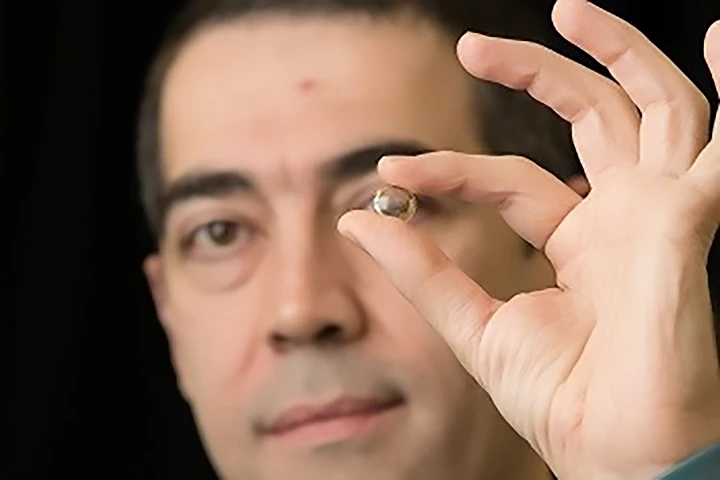Northumbria University
-
In an effort to diagnose glaucoma, a condition that can cause vision loss, earlier, researchers have developed contact lenses with sensors that measure the pressure inside the eye and send the information to an ophthalmologist for evaluation.
-
The concept of a home ground advantage, where teams play in familiar surrounds in front of their own adoring fans, is broadly accepted as having a major bearing on match-day performance, but exactly how much benefit does it bring?
-
Ordinarily, when a body is found, the time of death is estimated via insect activity or body temperature. Unfortunately, that doesn't apply if the corpse is in the water. Now, a new study suggests that bone proteins could still provide at least part of the answer.
-
Mission plans for SULIS, a solar project designed to answer fundamental questions about the physics of solar storms, have been revealed. Using a cluster of small, formation-flying satellites known as CubeSats, SULIS will directly measuring the magnetic field of the Sun's corona for the first time.
-
A huge iceberg, roughly twice the size of New York City, is set to soon break off from the Brunt Ice Shelf in Antarctica. With two large cracks due to meet within the next few months, a research station has already been relocated as scientists watch the rifting event enter its “final phase.”
-
Along with the usual desks and blackboards, primary school classrooms may soon be equipped with something a little less traditional – rosemary essential oil. According to a study recently conducted by a team from Northumbria University, the scent of the herb boosts children's working memory.
-
An engine powered by frozen carbon dioxide holds the potential to use the natural resources found on Mars to supply the on-going energy requirements of future long-term missions or attempts at colonization of the planet.
-
The Repentir app allows users to see how the painting "Transamerica" was created.







